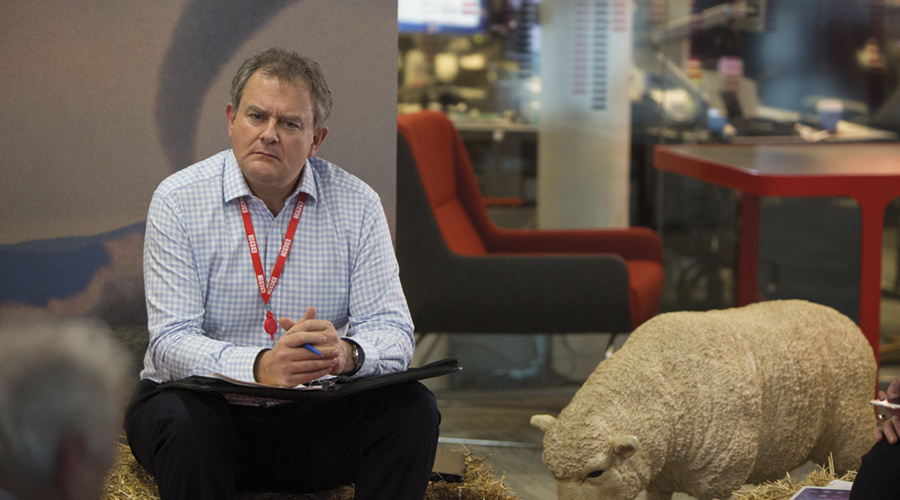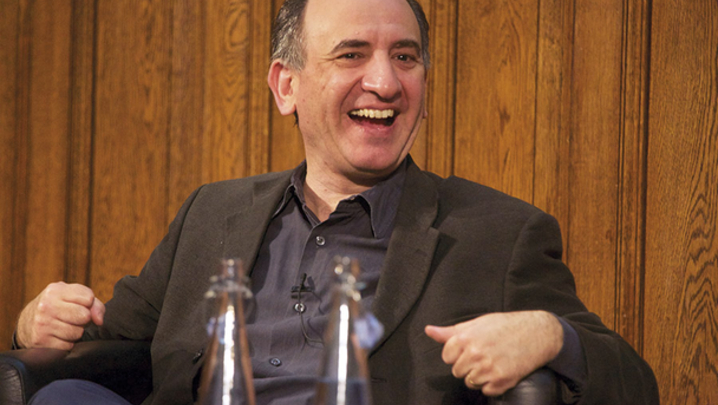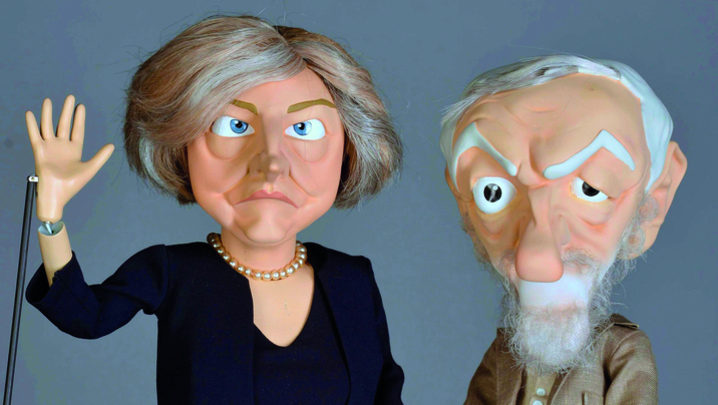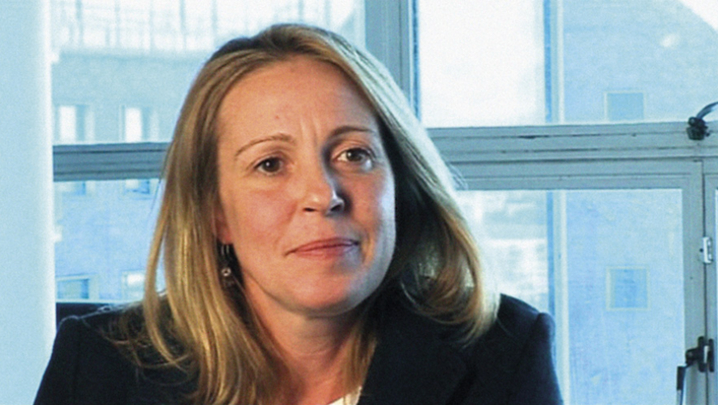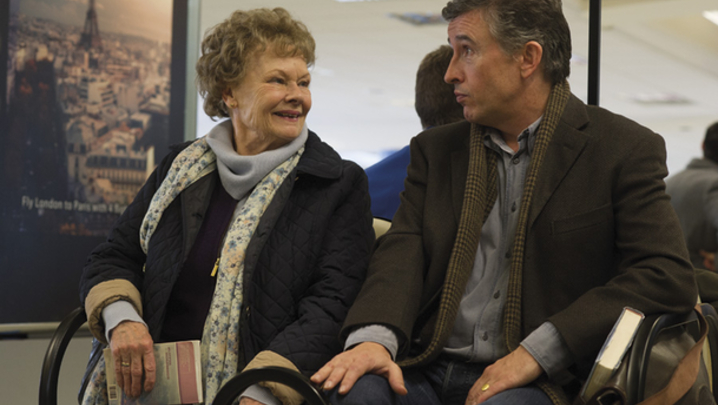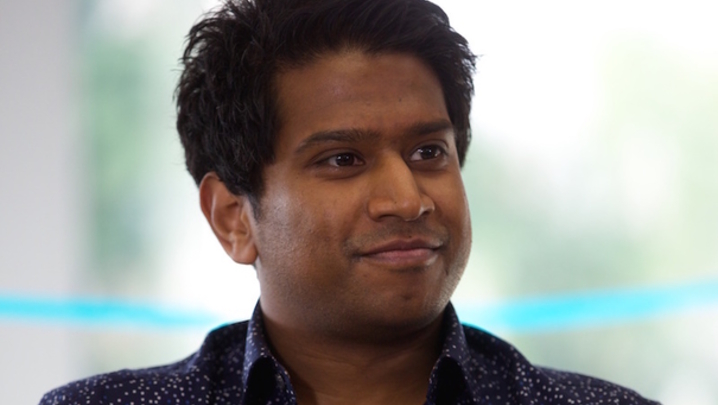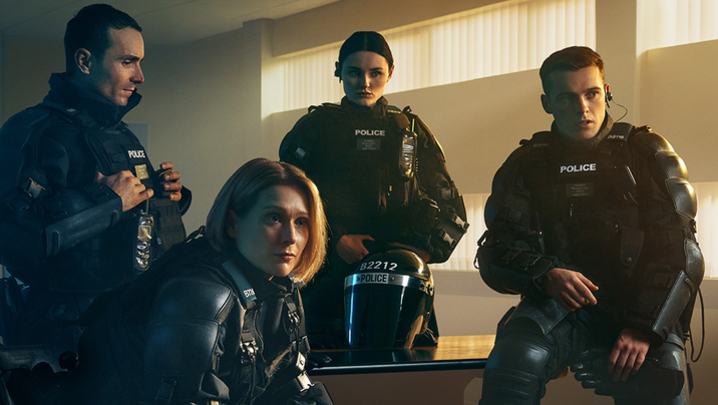From W1A to Gogglebox, TV shows about telly are everywhere. Stefan Stern provides a guide to some of the best and asks what they tell us about television’s view of itself
Will television eat itself? A flat screen might be easier to get down than a cathode-ray tube, and cause less indigestion – but, still, it doesn't really sound like a sensible diet.
All trades and professions are fascinated with themselves and like nothing more than talking endlessly about their own work. The TV industry is no different. In it's case, making telly about telly is proving increasingly irresistible.
We are all a bit too wised-up to dream about "the magic of television" any more. The schedules struggle to hold our attention.
But offered a glimpse behind the scenes or, better still, an irreverent or satirical view of the industry, then viewers do turn up in decent numbers. The cameras swing around and show us what we have not seen before.
In trendy, aesthetic terms, this practice is called "reflexivity": plays about plays, films about films and, now, TV about TV.
If you are trying to be profound, you could argue that reflexivity betrays doubts about the validity or usefulness of the original medium, and that there is scepticism as to its continued relevance or effectiveness.
It could just be, of course, that people are simply having a laugh. Whatever the reason behind this "narcissistic tendency", there is a lot of it about.
There are at least five sub-categories of this tendency that are worth considering in a little more depth.
Sitcoms about TV
When you turn the cameras around on what happens in the TV studio, there is fun to be had. Currently being repeated on London Live is Drop the Dead Donkey, a big hit from the 1990s. This was one of the first shows in recent times to shine a light on the nonsense of TV "grammar" and convention.
It also made fun, rightly, of some of the feeble amateur dramatics that TV news reporters can go in for. Not just about television, this show mocked journalism itself: the hyperbole, the inaccuracy, the dubious morality, the fiddled expenses, the egos.
And while there was topicality – news-related gags were dropped in late by the writers Andy Hamilton and Guy Jenkin – the show was also a classic workplace comedy. It was an added bonus that some monstrous TV folk were involved.
More recently, an even more knowing and dry take on telly has been offered in shows such as Episodes, Extras and, of course, WIA, which recently returned for a second series.
We all just knew, or at least suspected, that the BBC was a vast, bureaucratic, jargon-filled monster, permanently on the brink of scandal or (comic) chaos, but it has been delightful having it more or less confirmed by this programme. It has also been clever of the BBC to broadcast it.
Everyone loves an Aunty who can laugh at herself.
Is it possible that these shows can be too knowing, too "incestuous"? Audience figures suggest not. Perhaps viewers are now so "media literate" and sophisticated that they can handle all the industry references and do not find the insider chat and jargon self-indulgent.
But it could also be that the shelf life of shows such as these will inevitably be limited. Unless you work in television, the joke will wear off. And not even the Head of Values can do anything about that.
TV news satire
A crucial subset of telly about telly is the newsroom parody. Starting as a radio show (On the Hour), The Day Todayemerged in 1994 as a blistering take down of news gone mad, with a liberal dash of Graphics Hell.
Stalwarts included Rebecca Front's crazed US TV reporter who apparently could speak for minutes on end without ever taking a breath, and the peerless Chris Morris, who out-Paxmanned Paxman and all other presenters.
In Chris Morris’s absence, life has imitated art and, these days, there are a few Morris-like news anchors on our screen
Unfortunately, in his absence, life has imitated art and, these days, there are a few Morris-like news anchors on our screens.
Less satirical, and more romantic, was Aaron Sorkin's The Newsroom, which lasted for three series (2012-14), entertaining many but provoking many, as well. It was all a bit too good to be true.
Sketch shows
Another traditional vehicle is the show that nods to, or parodies, other telly. In Britain, Morecambe and Wisepopularised the idea that you could take a newsreader and put her in a fancy frock for a dance routine. Not the Nine O'Clock News, French and Saunders and Dead Ringers all featured skits or spoof
episodes.
There is a risk of being too clever for your own good, however.
Mel Smith and Griff Rhys Jones once made fun of The Two Ronnies, causing offence to their targets. But, arguably, repeats of The Two Ronnies' best work will still be being shown long after Alas Smith and Jones has been forgotten.
Some clip shows also provide introspective TV fun. Harry Hill's TV Burp (light-heartedly) and Charlie Brooker's Screenwipe (more abrasively) both do that.
TV chat show and showbiz comedy
The behind-the scenes elements of the TV industry, mocked in sitcoms such as Episodes, have been explored in more bitter-sweet detail by character comedies such as The Larry Sanders Show and I'm Alan Partridge.
Here, there is an acknowledgment that the industry can be a hard, unforgiving place, where cynicism and dishonesty can make or destroy careers. "No flipping!" Larry (Garry Shandling) used to implore his viewers – slightly despairingly.
We knew that he knew that we would. It was a dark and brilliant show. The hapless sidekick, Hank Kingsley (Jeffrey Tambor), was a remarkably subtle and moving character.
More oblique views of the TV industry have been offered in Larry David's Curb Your Enthusiasm, and in Harry and Paul's Story of the Twos, which aired last year to mark 50 years of BBC Two.
In these shows we are, flatteringly enough, in on the joke, without actually having to work in the industry ourselves.
Gogglebox
Lastly, this is perhaps the most enjoyable (and certainly the newest) category of the lot: watching people watching telly. Gogglebox took an image from the popular sitcom The Royle Family – that of the family gathered around the TV in time for some communal viewing, for example of a sweepstake based on the
valuations offered on Antiques Roadshow – and just left the camera running.
Gogglebox is a simple idea, a bit like a happier version of the telescreens imagined by George Orwell in his novel Nineteen Eighty-Four. They (or We) are looking in on Us (or Them), but only out of curiosity and for amusement, not sinister surveillance.
Sceptics will point out that Gogglebox merely confirms "observation theory": that pointing a camera at people is bound to cause them to change their behaviour.
Whatever the programme's biggest fans may claim about the naturalness and spontaneity of the comments, it seems unlikely that participants ever really forget that they are on the telly themselves.
No matter: it really is harmless fun for most of the family – and revealing stuff, too. We all have our favourites from the show: the Scouse pensioner Leon and the blunt, chirpy Geordie lass Scarlett Moffatt (and, yes, she has an agent, by the looks of it) being mine.
Inevitably, wags have pointed out that what we now need is a new format: a programme in which we get to see people who are watching Gogglebox to hear their comments on the comments being made by the people watching telly...

